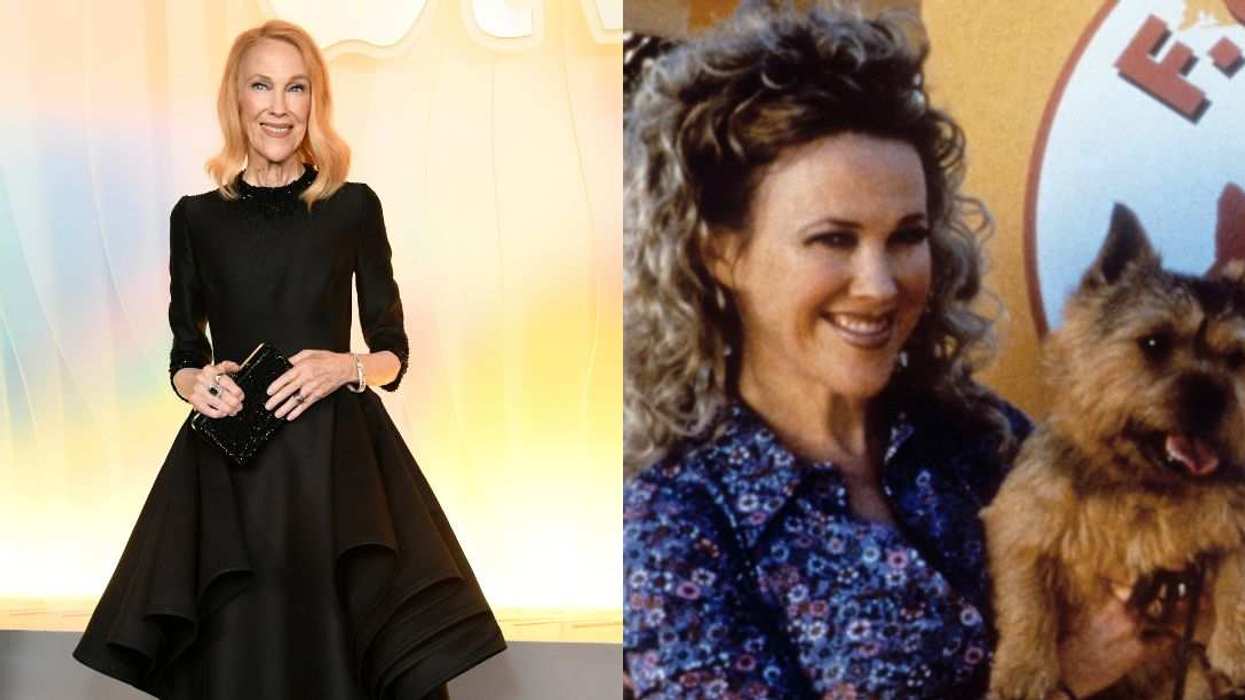Devoted parents Rebecca Barrow and Andrew Drinkwater live with the constant fear that a simple toddler tantrum could kill their daughter Charlie.
At least once a week the couple performs lifesaving CPR on their little girl, who is sent into cardiac arrest if, like other pre-school children, she “throws a wobbly" and holds her breath.
For Charlie, this triggers a potentially deadly sequence of events because of a string of serious health conditions, including Chiari malformation, where brain tissue extends into the spinal canal, creating serious implications for the respiratory system and heart.
“Charlie can go into cardiac arrest anytime, anywhere," Rebecca said.
“Usually, it starts with a typical toddler tantrum, where she'll hold her breath. But, unlike other toddlers, whose brains will kick in and force them to breathe, hers doesn't."
“Instead, she holds her breath to the point where she'll go into respiratory or cardiac arrest. If it's respiratory, she'll start turning blue and if it's her heart she'll go a grey-white color."

“As soon as it happens, it's all systems go. If it's respiratory we use an Ambu-bag – a self-inflating resuscitator – to pump air into her lungs and bring her round," she said.
“But when it's a cardiac arrest, we have to perform CPR with chest compressions – which happens around once a week. It can be the most terrifying thing to have your child's life in your hands – but I try not to think about it too much."

There are also times when her parents cannot revive Charlie, who uses a wheelchair and stops breathing a few times a day.
“Sometimes, we do have to call 999. When Charlie comes to afterwards, she bounces back really quickly and I just think, 'How is she going through all that and then carrying on?'" Rebecca continued.
“She's so confident and whenever we go back to hospital, she'll always wave at everyone and be like, 'Hi, I've arrived'. After everything she's been through, she still has this amazingly happy personality."
Eternally grateful for their ongoing medical support, Rebecca is telling her story to raise awareness of the Royal Manchester Children's Hospital Charity, which has supported her family since her daughter was born.
Describing her as a “sassy chatter box," she says Charlie has been plagued by problems since her birth on Valentine's Day 2017.
Ecstatic when they discovered they were expecting a little girl in the summer of 2016, Rebecca and Andrew's hopes were dashed at their 20-week scan at Royal Blackburn Hospital, where they were told she had spina bifida, a serious condition caused when a baby's spine and spinal cord do not develop properly in the womb.

A gap is left in the spine and can result in damage to the nervous system, which can cause hydrocephalus, a build-up of fluid on the brain, which can further damage it.
“I have epilepsy and my research revealed that my medication could increase the chances of a baby getting spina bifida," said Rebecca. “But the odds are still very low, and, in Charlie's case, our doctors could never say, for sure, what caused it."
A few weeks after the bombshell news, a special fetal scan at Saint Mary's Hospital, Manchester, confirmed that their unborn baby also had hydrocephalus and Chiari malformation.

“We were absolutely devastated," said Rebecca.
Admitted to Saint Mary's Hospital two days later, she endured a 48-hour labour before Charlie arrived weighing 7lb 5oz.
“When she was put on my chest, I felt an immense rush of love," Rebecca said.
Charlie was then whisked away to an incubator. At three days old Charlie had back closure surgery as the spina bifida had caused a gap in her back.
She also had a shunt fitted – a flexible plastic tube, which is inserted into the brain or spinal cord to divert excess cerebral spinal fluid (CSF) away from the brain. Charlie remained in the incubator for two weeks, then spent a further fortnight under observation before she was allowed to go home.
Just two weeks later, the baby was back in hospital again.

“Her breathing started to get worse. It was really heavy, and she sounded very distressed," she said.
But, when doctors at Royal Blackburn Hospital could not explain what was causing Charlie's distress, she was transferred to Royal Manchester Children's Hospital.
“I just had this gut feeling – like a mother's instinct – that something terrible was going to happen," Rebecca said.

Charlie suddenly stopped breathing completely and needed to be resuscitated.
Thankfully, doctors stabilized the baby, who was taken to the Intensive Care Unit (ICU) and put back on an incubator.
“That was one of toughest moments of my life – not knowing if my little girl would be okay," Rebecca said.
Referred to a neurologist, Charlie had a series of brain scans, before doctors decided the best course of action was to perform decompression surgery to remove bone at the back of her skull and spine to widen the space for her brain stem.
Just 12 weeks old when she had the nine hour operation, sadly, it did not work as well as hoped and, within days Charlie's oxygen level had dropped to a dangerously low 30, compared to the reading of 95 to 100, which is considered normal for a baby, and she was returned to ICU.
Further scans detected fluid blocking the shunt in her brain, which was causing her respiratory issues, after which she spent the next few months in hospital where doctors worked tirelessly to save her life.

“She had three shunt revisions and then her breathing improved again," Rebecca said.
In December 2017, after almost 10 months in hospital, Charlie finally went home.
“It was absolutely amazing to be at home for Christmas as a family," Rebecca said.

But by March 2018, her condition deteriorated again and she needed another shunt revision, going on to spend the next 18 months in and out of hospital where doctors tried to help with her breathing. Then in September 2019, she had a second decompression surgery.
“Charlie's had 11 operations in total to help her breathe or to relieve her symptoms," said Rebecca.
“And while her breathing improved, she kept having episodes where she would just stop breathing altogether."
These episodes led to Rebecca and Andrew being trained by hospital staff to perform CPR on Charlie, so they could save her life.
“I try not to think about it too much and just leap into action and do what I have to do," Rebecca said.
Even Rebecca's sister, Jessica, was there during an episode in January.
“My sister lives in Somerset, so we don't get to see each other as often as we'd like and spend a lot of time chatting on the phone. That day, we were on the phone when, suddenly, Charlie went into cardiac arrest. I didn't have time to hang up and had to perform CPR while I was on the phone," Rebecca said.

“Jessica knew how awful it was, but to hear it and not be able to see it, or know if Charlie was okay, really affected her," she said.
Since then, Jessica has been taking on a serious of often wacky challenges to raise $974 for the Royal Manchester Children's Hospital Charity.
“She was planning on doing a 50km trek – but when lockdown happened, those plans were put on hold. Instead, she's done two mini challenges – one where she balanced 27 slices of cheese on her face for as long as possible and another, where she spent 27 minutes in a paddling pool filled with tuna, tomatoes, egg, avocado, milk and honey!" Rebecca said.

“She's already raised £760, but now she's planning to go on a camping trip next year where she will do the 50km trek. I think what she's doing is brilliant and I'd love to see her try and camp, because she's definitely not the outdoors type!" she added.
Rebecca also wants to emphasize the importance of the charity's work.
“They do so much for all the children in the hospital – even if it's just bringing them a balloon to put a smile on their face. They are always there – even if it's just for a little chat. They are invaluable and the work they do is incredible," she said.
Fantastic medical support has helped Rebecca to feel positive about her daughter's future.
“We're hoping one day that Charlie does grow out of these episodes – as they're usually bought on by a toddler tantrum," she said. “If she does, there's no reasons why she can't live a wonderful life.
“She's such a little character and, considering everything she's been through, she's so resilient. She's always smiling and making other people smile – I'm just so proud to be her mom."
Royal Manchester Children's Hospital Charity fundraises throughout the year to support the treatment, research and care of young patients treated at the children's hospital in Oxford Road, Manchester.
To sponsor Jessica visit www.justgiving.com/fundraising/JessBarrow

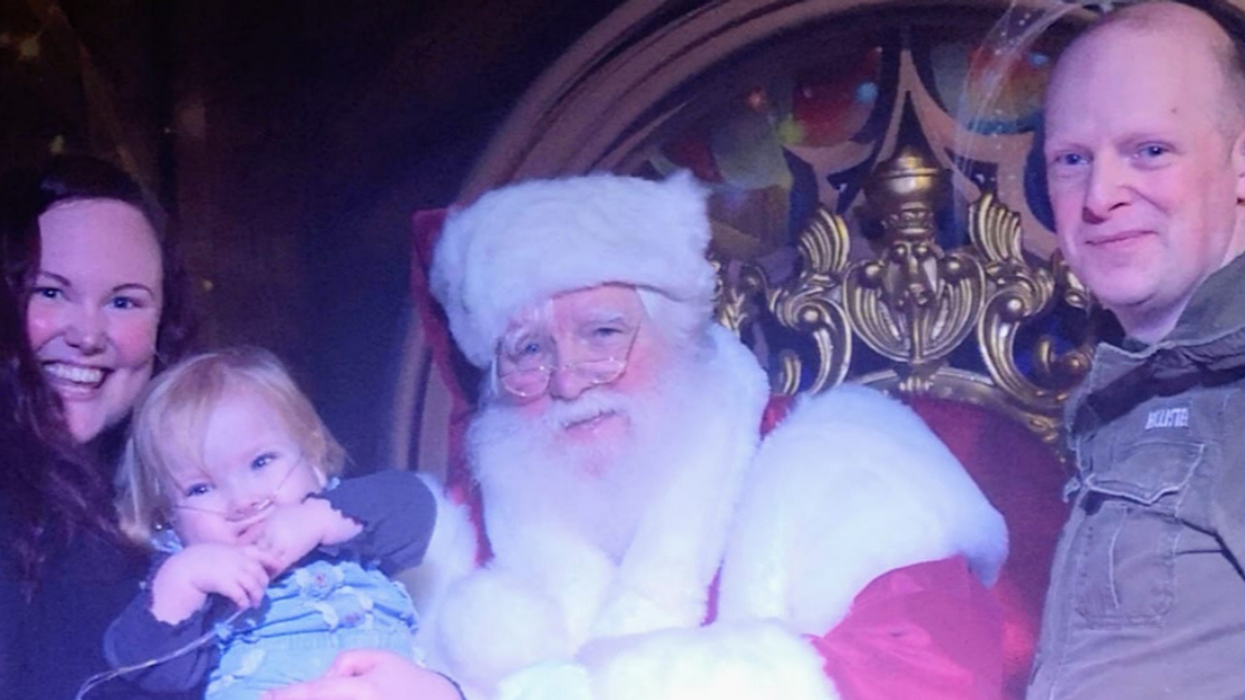



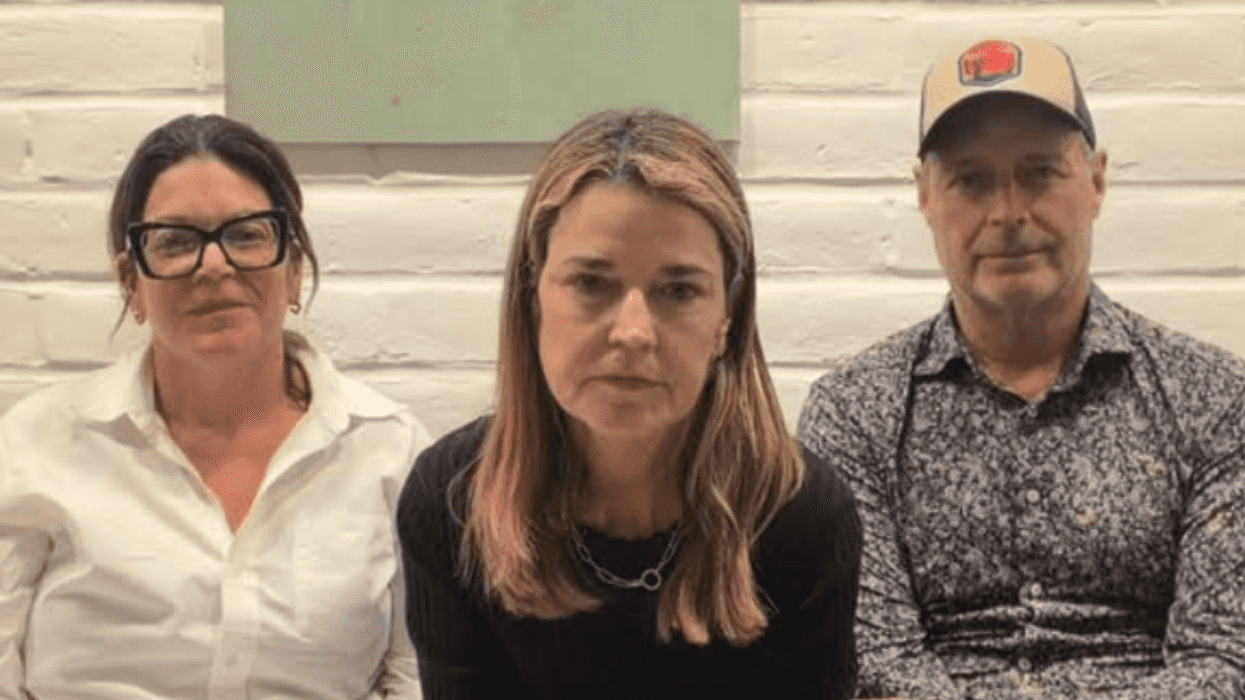
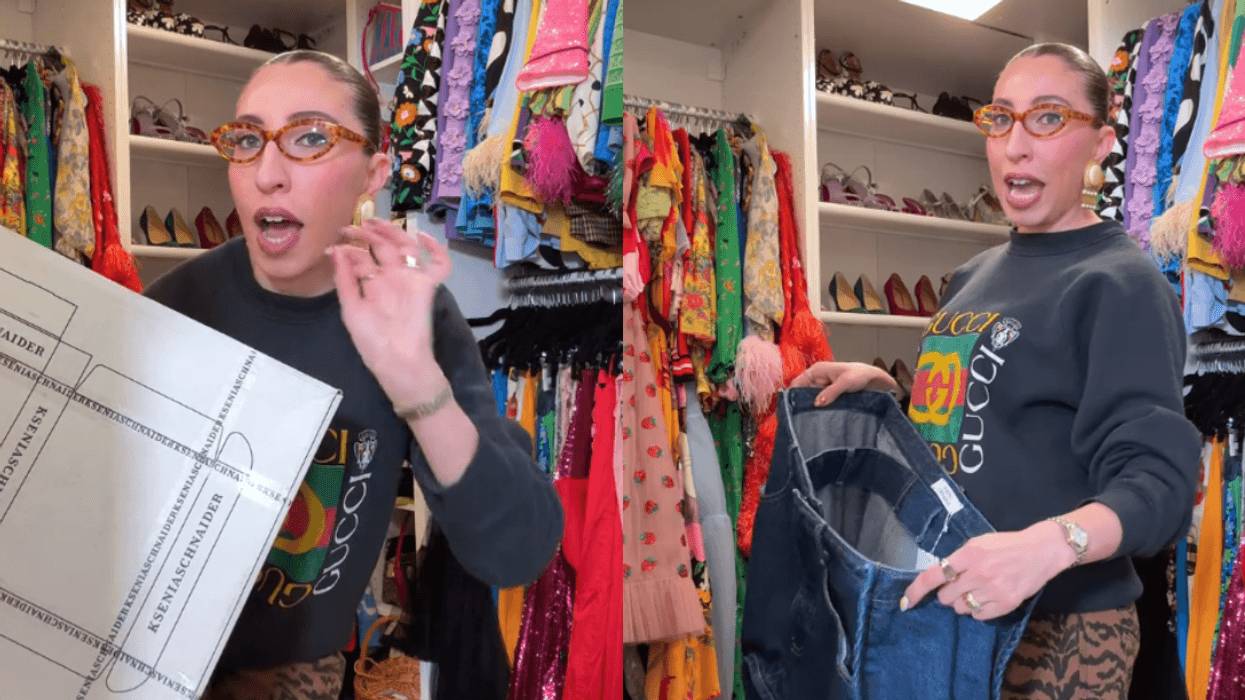






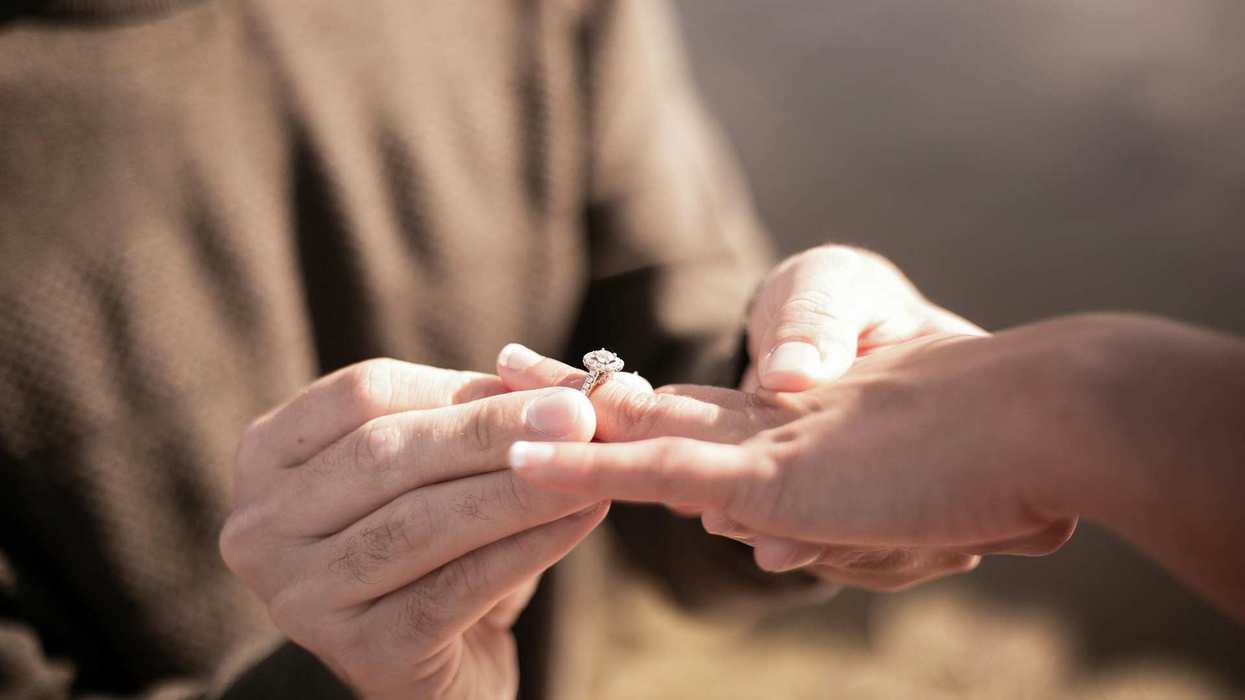
 The Office No GIF
The Office No GIF 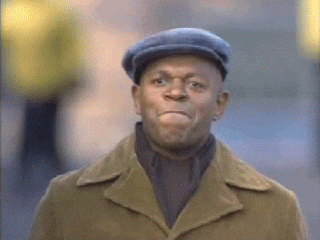 Excited Well Done GIF
Excited Well Done GIF 
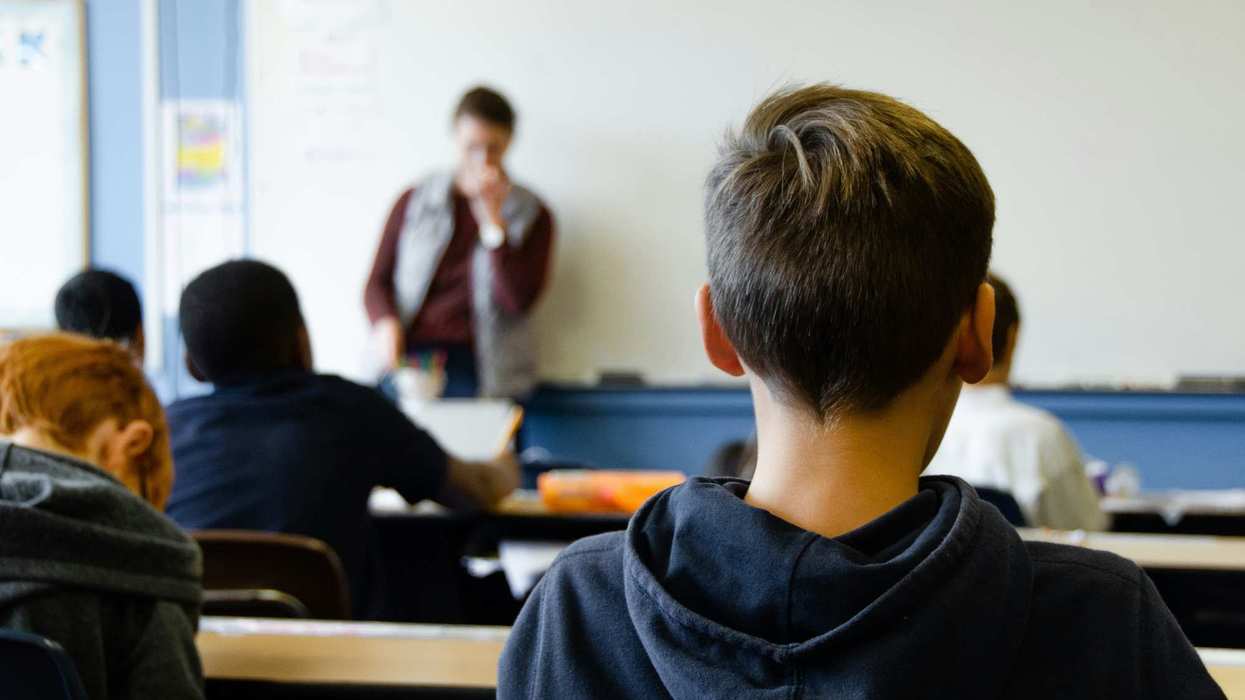
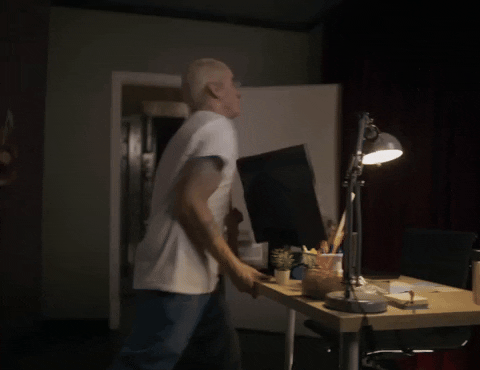 Mad Desk Flip GIF by Eminem
Mad Desk Flip GIF by Eminem 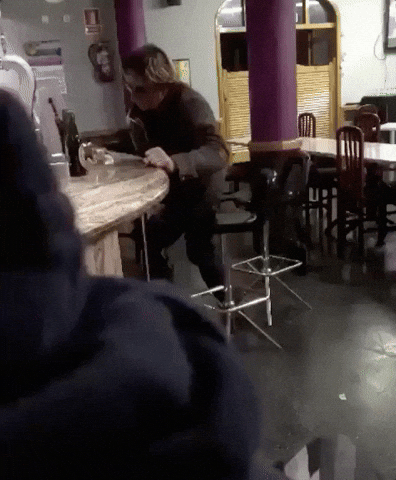 Drunk Head First GIF by Barstool Sports
Drunk Head First GIF by Barstool Sports 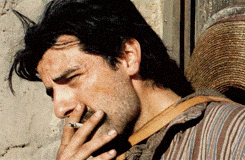 oscar isaac smoking GIF
oscar isaac smoking GIF  Napoleon GIF by Sony Pictures
Napoleon GIF by Sony Pictures 